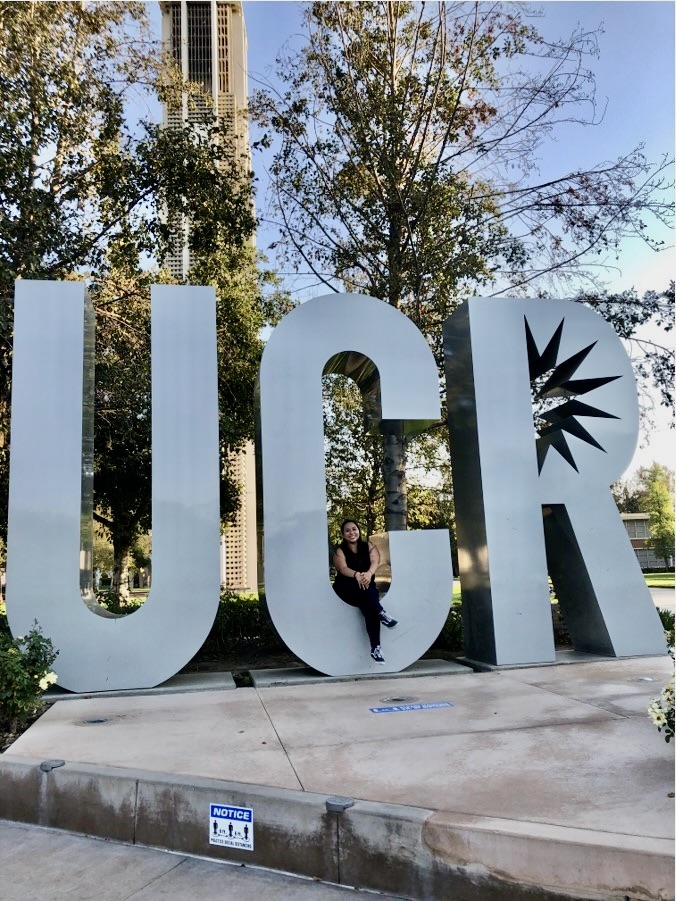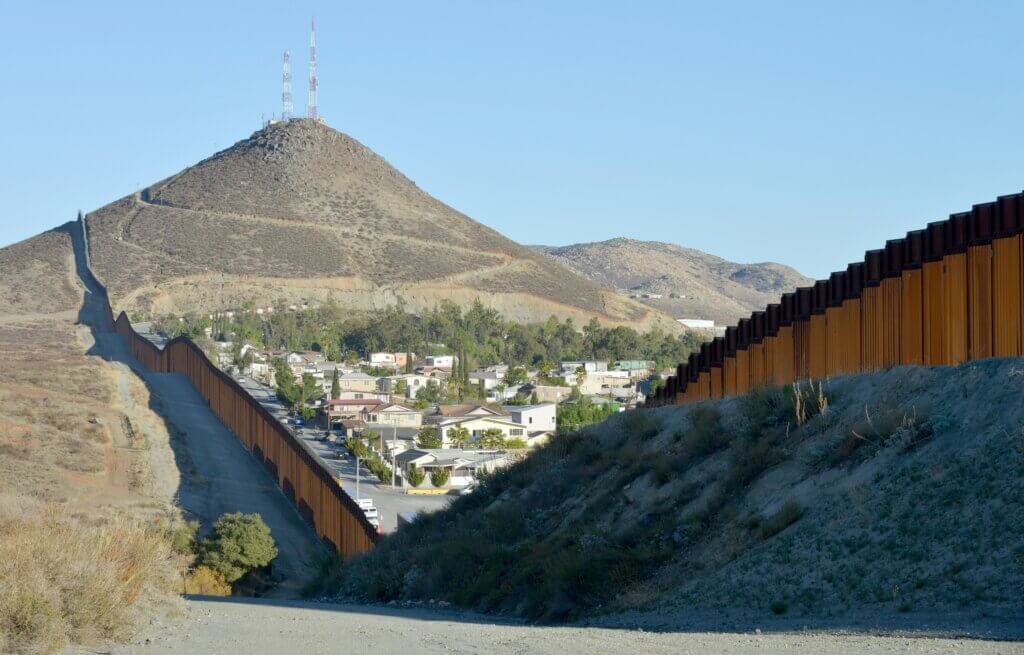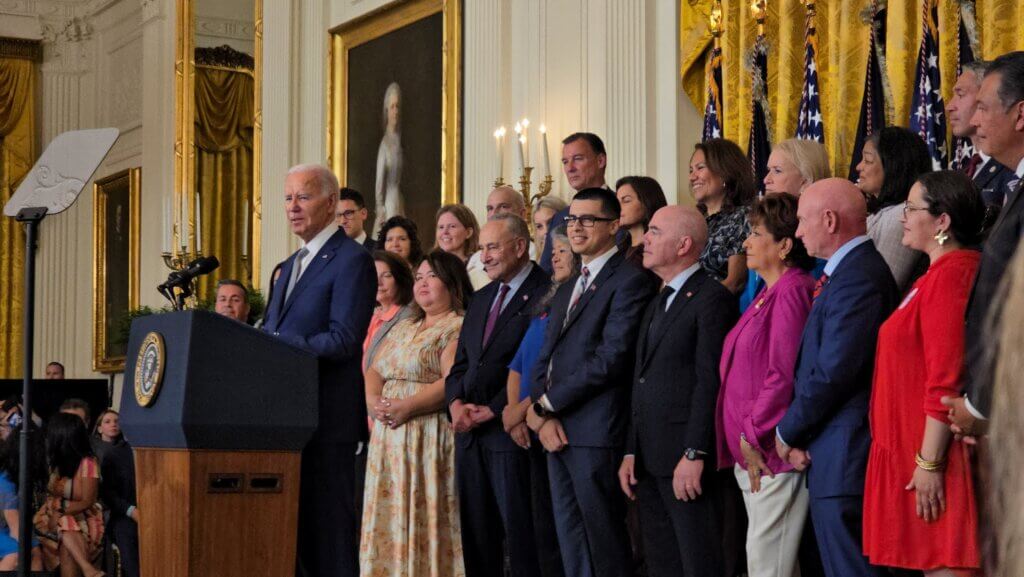‘Soy el Puente de los Sueños’ | ‘I’m the Bridge of Dreams’
My family brought me to the United States at the age of three hoping that all of us would achieve the American Dream. I spent my childhood in Los Angeles buying into that idea, but as I got older, I came to see that immigrants rarely have what they need to achieve the American Dream.
By Stephanie Ortiz, UnidosUS Education Policy Project intern

Without legal status, individuals are forced to take on rigorous and demanding jobs for minimum wage or less, and they face discrimination and fear due to their status, even as they make invaluable social and economic contributions to U.S. society.
I’m one of the lucky ones. As a DREAMer, a student who qualified for the Deferred Action for Childhood Arrival (DACA) program, I wanted to give my parents the satisfaction of seeing me be the first in my family to attend college. I ultimately did, but it took a huge network of individuals and organizations working on my behalf to make that happen. This summer, as a policy and advocacy intern with UnidosUS’s education team, I got to reflect on what that experience was like and how it could be streamlined for other immigrant students like myself.
How I Got There
Applying to college was not an easy process, but I got a leg up because I attended KIPP LA Prep in LA’s predominantly Latino Boyle Heights neighborhood. KIPP LA Prep is run by the KIPP Foundation, an organization whose mission is to offer vigorous education to low-income communities. The foundation made sure that all middle and high school students in its program got academic advising and financial support even after graduating from the charter school.
This kind of support continued when I went on to attend the Math, Science, and Technology Magnet Academy (MSTMA) at Boyle Heights’ Roosevelt High School. Thanks to its alliance with the non-profit organization College Track, the MSTMA provided students with workshops to develop their personal statements and strengthen their standardized test scores, along with workshops that informed parents about how they could better support us.
And yet, navigating the college application process was still confusing, especially when institutions classified me as an “alien” or “international student.” Colleges charged me thousands of dollars more in tuition for not being a U.S. citizen, even though I submitted and obtained an AB 540 form, which proved my long-term residency in California and gave me a legal work permit. I wondered, if they did this to someone like me with documentation, what other barriers do fully undocumented individuals face?

The Added Toll of the Pandemic
These are the usual barriers faced by students like me. Toward the end of high school in 2020, I had to deal with the added toll of the COVID-19 pandemic. Attending class online was one of several challenges. My family and I also felt the constant fear and stress of continuous exposure to the virus, since my parents and my brother were struggling to support our household as essential workers. To top it all off, the pandemic forced our school to hold high school graduation online, so my family didn’t get the satisfaction of seeing me walk across the stage for my diploma.
The struggle continued as I transitioned to my studies at the University of California, Riverside (UCR). I couldn’t take a physical tour of the campus or attend in-person orientation, academic advising, and financial aid meetings. I spent that first semester learning to nativagate higher education in a constantly changing and volatile environment.

Expanding on the Support Students Like Me Need
Luckily for me, a wide array of faculty and staff came to my aid, helping me to consider all my options for getting a degree in four years and for having the resources to pay for it. For example, I knew I wanted to study political science, and my advisors helped me to choose the classes within that discipline that would steer me toward a career in education policy. Then, because UCR staff knew that I was undocumented and therefore ineligible for federal financial aid, they provided my family and me with a lawyer who could help me apply for the DACA program. This status would then facilitate loans and scholarships specific to DREAMers and even give me access to traditional “study abroad” programs that are usually set aside for foreign students with visas.
I realize how fortunate I am to have all of these institutional resources providing me with the financial, legal, and academic advice I need to stay on track with my studies. Even though I continue to face challenges, particularly when it comes to providing verification documentation at UCR, I couldn’t have gotten to where I am without this intricate web of support.
I want this type of support to be available to all students. As such, I am drawing on the inspiration and skills I developed through this intricate support network, my UnidosUS policy and advocacy internship, and my ongoing political science studies, not to mention my own cultural experiences, all of which are preparing me for a career expanding the programs and policies that give students like me the support we need.
–Author Stephanie Ortiz spent the summer as an UnidosUS Education Policy Project intern.





